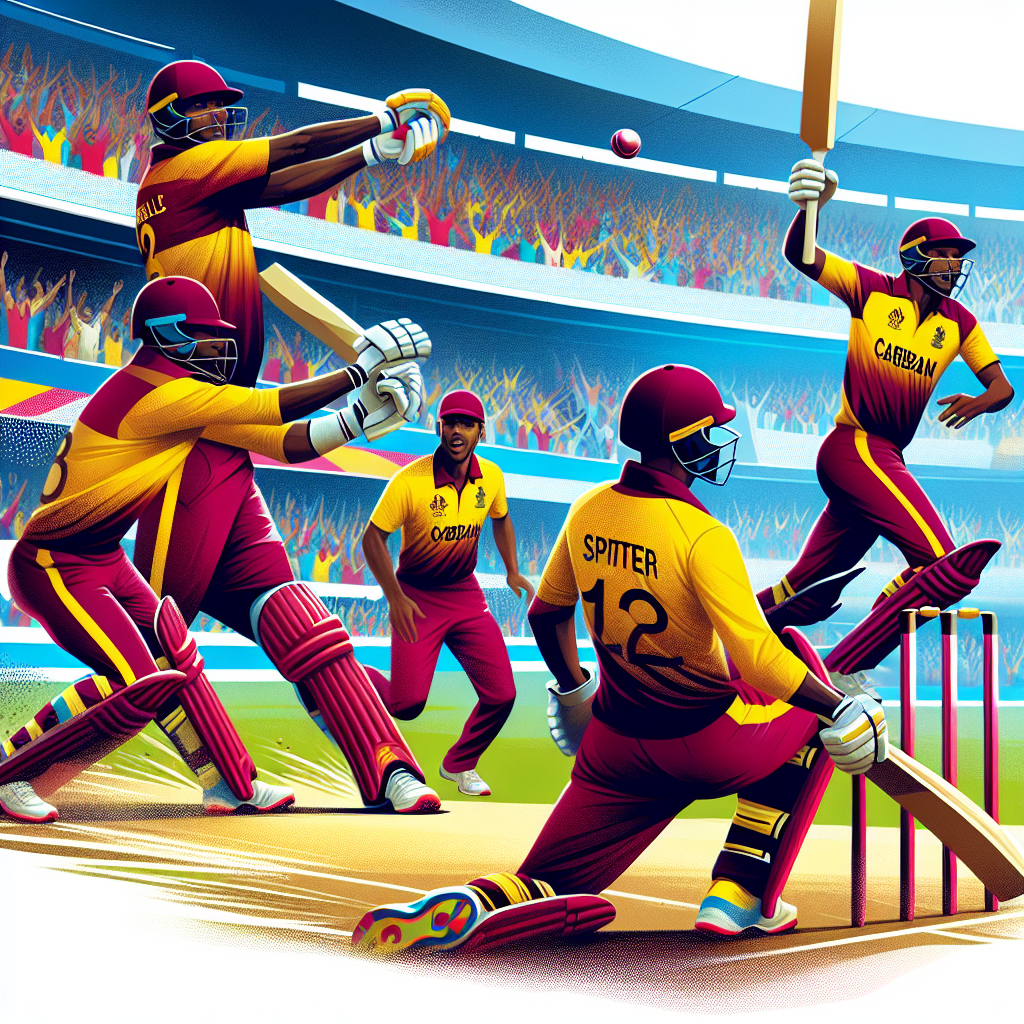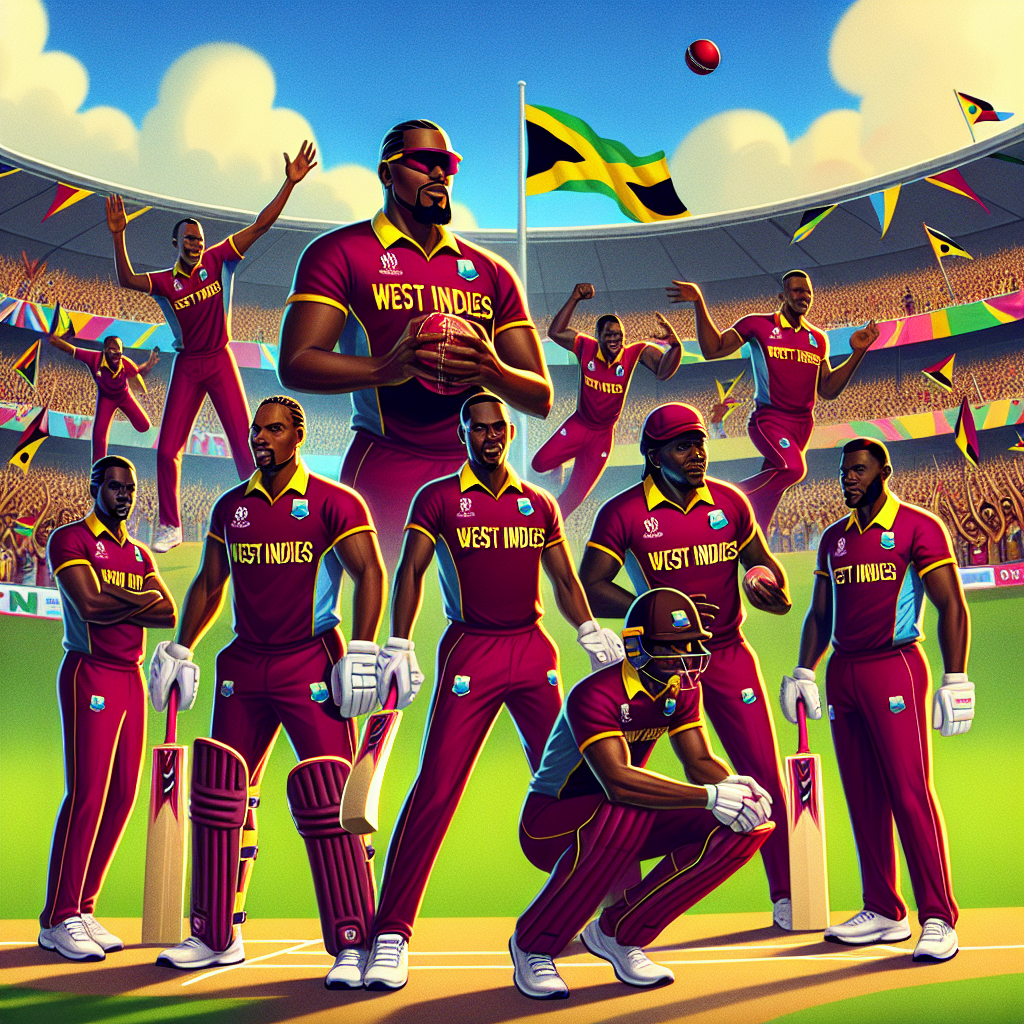
The West Indies cricket team, often referred to as the Windies, has a storied history in the world of cricket. Known for their flair, power, and dominance, the team has been a formidable force in international cricket, particularly in the World Cup tournaments. This article delves into the rich legacy of the West Indies World Cup team, exploring their achievements, challenges, and the future of West Indies cricket.
The Golden Era: Dominance in the 1970s and 1980s
The West Indies cricket team was a powerhouse in the late 20th century, particularly during the 1970s and 1980s. This period is often referred to as the "Golden Era" of West Indies cricket, marked by their back-to-back World Cup victories in 1975 and 1979.
1975 World Cup Triumph
The inaugural Cricket World Cup in 1975 saw the West Indies emerge as champions. Under the captaincy of Clive Lloyd, the team showcased their exceptional talent and strategic acumen. The final against Australia was a thrilling encounter, with Lloyd's century leading the team to victory. The West Indies' win in 1975 set the stage for their dominance in the years to come.
1979 World Cup Victory
Building on their success, the West Indies retained their title in the 1979 World Cup. The team, known for its formidable batting lineup and fearsome fast bowlers, defeated England in the final. Vivian Richards' explosive innings and Joel Garner's devastating bowling were instrumental in securing the win. This victory solidified the West Indies' reputation as the best cricket team in the world.
Key Players of the Golden Era
The success of the West Indies during this period can be attributed to a group of exceptionally talented players who left an indelible mark on the game.
- Clive Lloyd: The charismatic captain who led the team to two World Cup victories.
- Vivian Richards: Known for his aggressive batting style, Richards was a key figure in the team's success.
- Joel Garner: A towering fast bowler whose yorkers were feared by batsmen worldwide.
- Michael Holding: Nicknamed "Whispering Death," Holding was renowned for his pace and precision.
Challenges and Decline in the 1990s and 2000s
Despite their early successes, the West Indies cricket team faced numerous challenges in the subsequent decades. The 1990s and 2000s were marked by a decline in performance, with the team struggling to replicate their past glories.
Factors Contributing to the Decline
Several factors contributed to the decline of West Indies cricket during this period:
- Player Exodus: Many key players retired, leaving a void that was difficult to fill.
- Lack of Infrastructure: Inadequate training facilities and support systems hindered player development.
- Internal Conflicts: Disputes between players and the cricket board affected team morale and performance.
World Cup Performances
The West Indies' performances in World Cup tournaments during this period were disappointing. They failed to progress beyond the semi-finals, with inconsistent performances and early exits becoming a common theme. The team's inability to adapt to changing formats and strategies further compounded their struggles.
Resurgence and the T20 Revolution
In recent years, the West Indies have experienced a resurgence, particularly in the T20 format. The team's success in T20 World Cups has reignited hope for a revival in other formats as well.
T20 World Cup Success
The West Indies have won the ICC T20 World Cup twice, in 2012 and 2016. These victories were significant, showcasing the team's ability to adapt to the fast-paced nature of T20 cricket. The 2016 final against England was particularly memorable, with Carlos Brathwaite's four consecutive sixes in the final over securing a dramatic win.
Key Players in the T20 Era
The resurgence of West Indies cricket in the T20 format can be attributed to several key players:
- Chris Gayle: Known as the "Universe Boss," Gayle's explosive batting has been a cornerstone of the team's success.
- Dwayne Bravo: A versatile all-rounder whose experience and skill have been invaluable.
- Andre Russell: Renowned for his power-hitting and athleticism, Russell is a match-winner on his day.
The Future of West Indies Cricket
As the West Indies look to the future, there are several factors that will determine their success in upcoming World Cup tournaments.
Focus on Youth Development
Investing in youth development is crucial for the long-term success of West Indies cricket. Establishing academies and providing young players with access to world-class coaching and facilities will help nurture the next generation of cricketing talent.
Building a Strong Domestic Structure
A robust domestic cricket structure is essential for producing quality players who can compete at the international level. Strengthening domestic competitions and providing players with more opportunities to showcase their skills will be key to the team's success.
Embracing Technology and Innovation
Incorporating technology and data analytics into training and strategy will give the West Indies a competitive edge. Embracing innovation and staying ahead of the curve will be crucial in adapting to the evolving nature of the game.
Conclusion
The West Indies cricket team has a rich legacy in World Cup history, marked by periods of dominance and challenges. While the team has faced its share of struggles, recent successes in the T20 format have reignited hope for a brighter future. By focusing on youth development, strengthening domestic structures, and embracing innovation, the West Indies can aspire to reclaim their position as one of the world's leading cricketing nations. The journey ahead is challenging, but with the right strategies and commitment, the West Indies can once again become a force to be reckoned with on the global stage.

